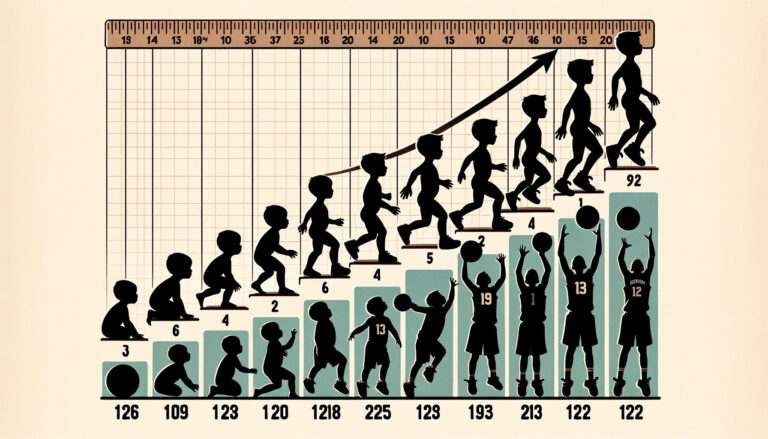The Importance of Rest and Recovery in Young Athletes’ Regimens
- The Importance of Rest and Recovery in Young Athletes’ Regimens - October 23, 2023
- Boosting Stamina and Endurance in Young Athletes: Tips and Tricks - October 23, 2023
- The Role of Coaches in Shaping Young Athletes - October 23, 2023
Understanding the Role of Rest and Recovery in Young Athletes’ Training
Rest and recovery play a crucial role in the training of young athletes. While intense workouts and practice sessions are necessary for skill development and performance enhancement, it is equally important to allow the body and mind to rest and recuperate. Rest periods give the muscles time to repair and rebuild, helping to prevent overuse injuries that could hinder an athlete’s progress. Furthermore, recovery allows the body to replenish energy stores and optimize hormonal balance, ensuring that young athletes are physically ready for subsequent training sessions.
In addition to the physiological benefits, rest and recovery also contribute to the mental well-being of young athletes. Training can be physically demanding and mentally exhausting, resulting in increased stress levels. Adequate rest periods provide an opportunity for young athletes to recharge and relax, reducing the risk of burnout and promoting mental clarity. Moreover, rest and recovery allow young athletes to reflect on their training and performance, enhancing self-awareness and motivation. Overall, understanding the importance of rest and recovery in young athletes’ training is essential for maximizing their potential and ensuring long-term success.
The Physiological Benefits of Proper Rest and Recovery for Young Athletes
Proper rest and recovery play a crucial role in the physiological development of young athletes. When athletes engage in intense training sessions, their muscles experience micro-tears and metabolic waste products build up in their body. This can lead to muscle fatigue, soreness, and decreased performance. However, by allowing adequate time for rest and recovery, these physiological effects can be mitigated.
One of the main benefits of rest and recovery is the repair and regeneration of muscles. During periods of rest, the body has the opportunity to rebuild the muscle fibers that were damaged during training. This process, known as muscle protein synthesis, helps to strengthen the muscles and improve their overall capacity to withstand future physical stress. Additionally, rest allows for the clearance of metabolic waste products, such as lactic acid, from the muscle tissue. This enables the muscles to return to their optimal functioning state and reduces the risk of fatigue and injury.
Exploring the Impact of Rest and Recovery on Injury Prevention in Young Athletes
Rest and recovery play a crucial role in injury prevention among young athletes. When athletes engage in intense training sessions without giving their bodies adequate time to recover, they put themselves at a higher risk of sustaining injuries. This is because the body needs time to repair and rebuild the stressed tissues and muscles. Without proper rest, the body becomes more vulnerable to overuse injuries, such as stress fractures, muscle strains, and tendonitis.
Studies have shown that rest and recovery periods are essential for allowing the body to adapt and strengthen, thus reducing the risk of injuries. Rest allows for the replenishment of energy stores, repair of damaged tissues, and the reduction of inflammation. Moreover, proper rest and recovery also help to improve neuromuscular control and coordination, which are vital for maintaining balance and preventing injuries. By incorporating strategic rest and recovery periods into their training routines, young athletes can optimize their physical conditioning and minimize the chances of getting injured.
How Rest and Recovery Enhance Performance and Skill Development in Young Athletes
Rest and recovery play a crucial role in enhancing the performance and skill development of young athletes. When athletes engage in intense training sessions, their muscles and tissues experience microscopic damage, which is a normal part of the training process. Rest allows the body to repair and rebuild these damaged tissues, leading to stronger and more resilient muscles. Additionally, recovery provides the opportunity for the body to replenish energy stores and restore hormonal balance, enabling athletes to perform at their best during subsequent training sessions and competitions.
Moreover, adequate rest and recovery have been found to positively impact skill development in young athletes. During rest periods, the brain has the chance to assimilate new information and consolidate motor skills acquired during training. Sleep, in particular, is a crucial time for the brain to process and store newly learned movements and techniques. This consolidation process promotes better retention and transfer of skills, allowing athletes to refine their techniques and improve their overall performance. By prioritizing rest and recovery, young athletes can optimize their training outcomes and take their skills to the next level.
The Psychological Benefits of Rest and Recovery for Young Athletes’ Mental Well-being
Rest and recovery play a crucial role in promoting the mental well-being of young athletes. When athletes take the time to rest and recover, they allow their minds to recharge and rejuvenate. This can lead to improved focus, concentration, and overall mental clarity. Additionally, rest and recovery can help reduce stress and prevent burnout in young athletes.
One of the key psychological benefits of rest and recovery is improved mood and emotional well-being. Engaging in regular periods of rest allows athletes to relax and unwind, which can have a positive impact on their mental state. It allows them to step away from the pressures and demands of their training, giving them the opportunity to engage in enjoyable activities or spend quality time with loved ones. This can help reduce feelings of anxiety or depression and contribute to a more balanced and positive mental outlook.
Implementing Effective Rest and Recovery Strategies in Young Athletes’ Training Programs
Rest and recovery are crucial components of any young athlete’s training program. Implementing effective strategies for rest and recovery not only aids in physical rejuvenation but also enhances overall performance and prevents the risk of injuries. It is important for coaches and trainers to prioritize and incorporate these strategies into the training schedule.
One effective strategy for rest and recovery is ensuring an adequate amount of sleep. Research has shown that sleep plays a vital role in the physical and mental well-being of young athletes. Sufficient sleep promotes muscle repair, hormone regulation, and cognitive function, all of which are essential for optimal performance. Coaches should educate athletes and their parents about the importance of consistent, quality sleep and encourage them to establish good sleep habits. Additionally, creating a conducive sleep environment, such as a cool and dark bedroom, can further enhance the benefits of rest and recovery.
Recognizing the Signs of Overtraining and the Importance of Rest in Young Athletes
Recognizing the signs of overtraining in young athletes is crucial for their overall well-being and success in their chosen sport. One common indicator is persistent fatigue that doesn’t improve with regular rest. This can manifest as a lack of energy during training sessions, decreased performance, or a general feeling of exhaustion. Another sign is an increase in injuries or a decline in physical performance. Overtraining can weaken the body’s immune system, making athletes more susceptible to illnesses and injuries. It is important for coaches, parents, and athletes themselves to be aware of these signs and take them seriously in order to prevent long-term damage and promote proper rest and recovery.
The importance of rest in young athletes cannot be overstated. Rest allows the body to recover from the physical stress and strain of training, preventing overuse injuries and promoting muscle repair and growth. It also gives the mind a break from the mental demands of the sport, reducing the risk of burnout and improving overall mental well-being. When athletes don’t get enough rest, they may experience decreased focus and concentration, increased irritability, and a decline in their motivation to perform. By prioritizing rest and incorporating dedicated rest days into their training schedules, young athletes can optimize their performance, prevent overtraining, and ensure their long-term success in their chosen sport.
The Role of Nutrition and Hydration in Supporting Young Athletes’ Rest and Recovery
Proper nutrition and hydration play a vital role in supporting the rest and recovery of young athletes. It is essential for young athletes to fuel their bodies with the right nutrients to aid in muscle repair, replenish energy stores, and optimize overall performance. By consuming a well-balanced diet consisting of carbohydrates, proteins, healthy fats, vitamins, and minerals, young athletes can ensure their bodies have the fuel and building blocks necessary for recovery. Additionally, staying adequately hydrated is crucial as dehydration can hinder the body’s ability to recover and repair itself. Drinking enough water throughout the day helps maintain fluid balance, regulate body temperature, and transport nutrients to the cells, promoting optimal rest and recovery in young athletes.
The Importance of Sleep and its Impact on Young Athletes’ Rest and Recovery
Adequate sleep is crucial for young athletes’ rest and recovery. During sleep, the body undergoes various processes that promote physical restoration. This includes the release of growth hormone, which plays a vital role in muscle repair and development. Additionally, sleep allows the body to regulate hormone levels, such as cortisol, which aids in reducing inflammation and stress. Not getting enough sleep can hinder these processes and interfere with the body’s ability to recover effectively.
Furthermore, sleep is essential for cognitive function and mental well-being in young athletes. Sleep deprivation can impair concentration, reaction time, and decision-making skills, all of which are critical for athletic performance. Moreover, insufficient sleep has been linked to increased feelings of fatigue, irritability, and mood disturbances. These factors can not only affect an athlete’s performance on the field but also their overall mental and emotional well-being. Therefore, prioritizing enough sleep is vital for young athletes to optimize their rest and recovery, both physically and mentally.
Creating a Balanced Training Schedule for Young Athletes that Prioritizes Rest and Recovery
Creating a balanced training schedule for young athletes that prioritizes rest and recovery is essential for their overall development and well-being. When designing a training program, it is important to consider not only the physical demands of the sport but also the restorative needs of the athletes. Rest and recovery periods allow the body to repair and rebuild itself, preventing overuse injuries and optimizing performance.
One key aspect of creating a balanced training schedule is to incorporate regular rest days and low-intensity recovery sessions. Rest days provide young athletes with an opportunity to recharge both physically and mentally. This downtime allows the body to heal any micro-tears in the muscles, replenish energy stores, and reduce the risk of burnout. Incorporating low-intensity recovery sessions, such as stretching or light aerobic exercises, can also promote blood flow and aid in the removal of metabolic waste products, further supporting the recovery process. By including these intentional periods of rest and recovery in the training schedule, young athletes can maintain their physical health, prevent injuries, and optimize their performance levels.






